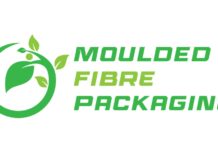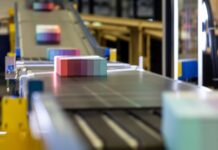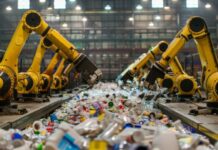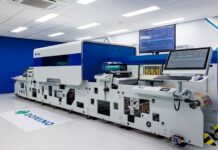Built by the Confederation of Paper Industries (CPI) and also supported by the paper-based industries in the UK, Papercycle’s automated online tool goes on to provide a strong and comprehensive system so as to assess the recyclability of fibre-based products and also materials in a more consistent and credible way.
It further identifies if the fibre-based packaging materials can be recycled across the UK and what kind of recycling mills can reprocess them. It is well to be noted that recyclability can be assessed at any stage, both in the case of finished and semi-finished products.
Papercycle helps with an instant diagnosis when it comes to recyclability by way of an online assessment; however, when it comes to products or materials that happen to be complex, Papercycle can go on to conduct timely laboratory testing under the aegis of the Confederation of European Paper Industries (CEPI) recyclability test method.
By way of undergoing a laboratory test, Papercycle can go on to offer a technical review service as to how a product goes on to behave with regards to certain lab conditions so as to give an insight into how the numerous components interact with one another, assess the most pivotal parts, and also signpost solutions that have potential for modification of the material. Papercycle can therefore prepare fibre-based packaging in case of certification and expansion across the UK as well as other markets, but of course with local variations as well as the requirements.
Although, in principle, all the fibre-based packaging happens to be recyclable, innovations when it comes to material development can make some of the products more complex and challenging to recycle. This means that the basic recyclability evaluations that are based on visual or even a simple compositional analysis are no longer sufficient to capture the challenges as far as the recycling process is concerned and also precisely reflect the exact recyclability of packaging.
It is well worth noting that minus the absolute assessment, there can as well be an unintentional consequence on the environment, like the packaging being sent to a facility pertaining to recycling where it cannot get processed, elevated waste, and contamination. A simple compositional assessment can therefore go on to potentially hamper the move towards a more circular economy and cause disruption in the recycling supply loop business.
So as to address this, the confederation of paper industries has gone on to consider European along with local industry standards and has also engaged thoroughly with stakeholders throughout the paper industry who are giving advice when it comes to permissible non-fibre levels as well as parameters so as to develop Papercycle.
Papercycle goes on to help producers come up with real knowledge when it comes to the recycling loop, which will go on to help keep the fibre-based materials from packaging in use for as long as it can and thereby contribute towards a more sustainable future.
With the EPR reforms currently ongoing, Papercycle’s certification service can help in a standardised labelling system where customers can go on to receive a recycle label, which is going to be required by the UK’s compulsory recyclability labelling in case of packaging.
Apparently, packaging that is certified to be recyclable can also attract a lower producer responsibility fee that is associated with complying with the reformed packaging waste regulations. Moreover, for consumers, Papercycle can go on to avoid confusion on what can be recycled and what cannot be considered for recycling.
The director of recycling at the Confederation of Paper Industries, Dimitra Rappou, remarked that since the packaging materials have gone on to become very complex, they have witnessed confusion when it comes to the recyclability of materials, with an oversimplified evaluation approach threatening the recycling quality.
Papercycle’s novel service can eradicate the ambiguity and uncertainty concerned with packaging designers, retailers, brands, and also policymakers on the recyclability of fibre-based products. As per Rappou, they see this playing a pivotal role when it comes to promoting a circular economy in terms of fibre-based packaging so as to aid in the reduction of waste and also lower carbon emissions by way of keeping materials in use for longer periods of time.
By way of offering precise data when it comes to recyclability, Papercycle helps brands and manufacturers design and develop packaging solutions that help out with a more sustainable future.




























